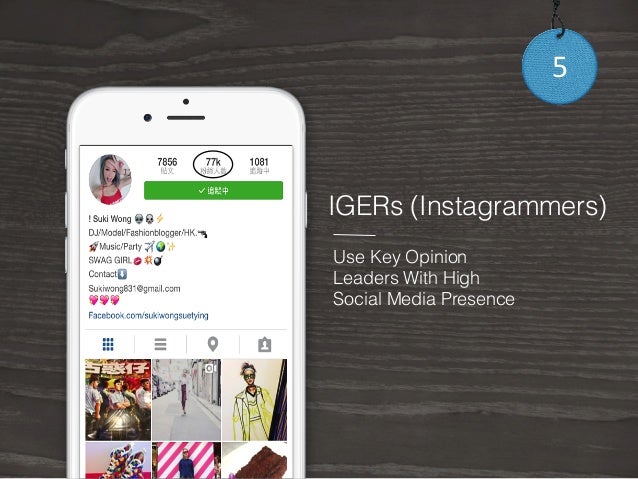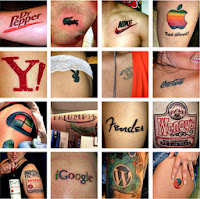Social Media(tor)
It
is often said a picture speaks a thousand
words. Literally and figuratively in the case
of Instagram. Instagram culture (and social media in general)
thrive on social currency. The prettier you are, the more stylish
your clothes and the more flourishing your social life usually transcends into your follower count. Whether we choose to accept the
responsibility or not, the way we present ourselves on social media
is our own personal brand. Essentially in a few posts you can create
and sell a lifestyle, something many brands invest millions into
sustaining.
 Millennials are increasingly harder to engage within
traditional above the line advertising methods and techniques, and
able to see through the 'puppet strings' or financial benefits
of many partnerships and general marketing initiatives. Which is why
peer-to-peer influence sometimes remains our only credible source of aspiration. I know its not cool to admit, but our peers and immediate
circle have a direct influence on our consumer habits and behaviour.
Though I may love Rihanna's daring fashion sense, I expect it of her;
with the budget she has to splash on expensive designs and stylists,
most go as far as doting on her. Lavishing her with
exclusive collections, Rihanna being a one woman promotional army. So
when 'Rachel from up the road' posts an envious OOTD (outfit of the
day) it can sometimes have a greater appeal because I assume its more
attainable (even if Rachel's own style has been influenced by the
likes of a Rihanna) our peers here working as influencers or opinion
leaders.
Millennials are increasingly harder to engage within
traditional above the line advertising methods and techniques, and
able to see through the 'puppet strings' or financial benefits
of many partnerships and general marketing initiatives. Which is why
peer-to-peer influence sometimes remains our only credible source of aspiration. I know its not cool to admit, but our peers and immediate
circle have a direct influence on our consumer habits and behaviour.
Though I may love Rihanna's daring fashion sense, I expect it of her;
with the budget she has to splash on expensive designs and stylists,
most go as far as doting on her. Lavishing her with
exclusive collections, Rihanna being a one woman promotional army. So
when 'Rachel from up the road' posts an envious OOTD (outfit of the
day) it can sometimes have a greater appeal because I assume its more
attainable (even if Rachel's own style has been influenced by the
likes of a Rihanna) our peers here working as influencers or opinion
leaders.
 Millennials are increasingly harder to engage within
traditional above the line advertising methods and techniques, and
able to see through the 'puppet strings' or financial benefits
of many partnerships and general marketing initiatives. Which is why
peer-to-peer influence sometimes remains our only credible source of aspiration. I know its not cool to admit, but our peers and immediate
circle have a direct influence on our consumer habits and behaviour.
Though I may love Rihanna's daring fashion sense, I expect it of her;
with the budget she has to splash on expensive designs and stylists,
most go as far as doting on her. Lavishing her with
exclusive collections, Rihanna being a one woman promotional army. So
when 'Rachel from up the road' posts an envious OOTD (outfit of the
day) it can sometimes have a greater appeal because I assume its more
attainable (even if Rachel's own style has been influenced by the
likes of a Rihanna) our peers here working as influencers or opinion
leaders.
Millennials are increasingly harder to engage within
traditional above the line advertising methods and techniques, and
able to see through the 'puppet strings' or financial benefits
of many partnerships and general marketing initiatives. Which is why
peer-to-peer influence sometimes remains our only credible source of aspiration. I know its not cool to admit, but our peers and immediate
circle have a direct influence on our consumer habits and behaviour.
Though I may love Rihanna's daring fashion sense, I expect it of her;
with the budget she has to splash on expensive designs and stylists,
most go as far as doting on her. Lavishing her with
exclusive collections, Rihanna being a one woman promotional army. So
when 'Rachel from up the road' posts an envious OOTD (outfit of the
day) it can sometimes have a greater appeal because I assume its more
attainable (even if Rachel's own style has been influenced by the
likes of a Rihanna) our peers here working as influencers or opinion
leaders.
As
someone with an active interest in partnerships, it poses the
question, not only on the significance of entertainment partnerships - geared towards a cynical target audience (who view marketing and
advertising as transparent). But also of the longterm effects the empowerment of social media influencers have had, in potentially
devaluing the leverage of bona fide celebrities.
 Take
Marks & Spencer's latest Leading
Ladies campaign - which features a wide range of women including
international pop star Rita Ora, actress Emma Thompson, the iconic
Annie Lennox alongside campaigner Baroness Lawrence
and Structural Engineer Roma Agrawa to name a few. The diverse
line up was criticised for failing to segment a clear
target audience with such a contradictory array of models. M&S
here seemingly claiming to be all things for all
women. Despite this, figures later suggested the campaign
was a success with a surge in their womenswear sales.
Proving role models and influencers come in many different form.
Take
Marks & Spencer's latest Leading
Ladies campaign - which features a wide range of women including
international pop star Rita Ora, actress Emma Thompson, the iconic
Annie Lennox alongside campaigner Baroness Lawrence
and Structural Engineer Roma Agrawa to name a few. The diverse
line up was criticised for failing to segment a clear
target audience with such a contradictory array of models. M&S
here seemingly claiming to be all things for all
women. Despite this, figures later suggested the campaign
was a success with a surge in their womenswear sales.
Proving role models and influencers come in many different form.
Its
fair to say younger audiences are more likely to connect with brands
who actively try to engage with them, coming down from their golden
pedestals. Though, only time will tell if the mediators they use, will
also have to meet them on a similar demographical level -through being a
peer in the hope of providing greater authenticity and forming a more
attainable aspiration.



Comments
Post a Comment